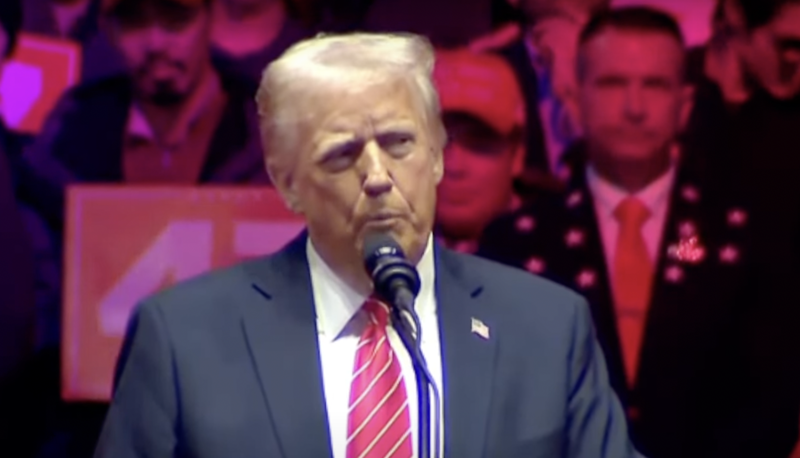President Donald Trump could take a slower, more deliberate process in establishing tariffs after promising for months that trade partners would be hit with significant tariffs on his first day in office.
Trump plans to issue a broad memo Monday that directs federal agencies to examine trade policies and evaluate U.S. trade relationships with China, Mexico and Canada.
The memo stops short of imposing new tariffs on his first day in office, as Trump promised and many trading partners feared, according to a Wall Street Journal report.
On the campaign trail, Trump laid out bold tariff plans. Trump posed baseline tariffs of 10% to 20% on all foreign imports and up to 60% on goods from China.
After winning the election in November, Trump vowed to hit America’s top trading partners – Mexico and Canada – with 25% tariffs on imported goods and singled out China for an additional 10% tariff. Trump said at the time that he plans to put the tariffs in place on his first day in office and keep them in place until problems at the northern and southern border are fixed and China addresses its role in supplying the precursor chemicals needed to make fentanyl, a powerful opioid blamed for more than 75% of U.S. overdose deaths.
He has since publicly softened his stance.
On Jan. 17, Trump said he spoke with the President of the People’s Republic of China, Xi Jinping, about balancing trade and fentanyl issues.
“I just spoke to Chairman Xi Jinping of China. The call was a very good one for both China and the U.S.A.,” Trump wrote on Truth Social. “It is my expectation that we will solve many problems together, and starting immediately. We discussed balancing Trade, Fentanyl, TikTok, and many other subjects. President Xi and I will do everything possible to make the World more peaceful and safe!”
Trump, and most federal agencies including the DEA, largely blamed China for supplying the precursor chemicals needed to make the powerful synthetic opioid. Trump and those same agencies have repeatedly blamed Mexico for using those precursor chemicals to flood the U.S. drug market with cheap fentanyl, fueling an overdose epidemic.
Trump’s Monday memo puts Canada and Mexico on notice ahead of a planned 2026 review of the 2020 United States-Mexico-Canada Agreement, which replaced the earlier North America Free Trade Agreement. The summary of the memo says federal agencies will “now assess the impact of the USMCA on American workers and businesses and make recommendations regarding America’s participation in it,” The Wall Street Journal reported.
The memo also order economic agencies to focus on reducing longstanding trade deficits. It also directs a focus on currency manipulation, which Trump singled out China and Vietnam during his first term, as well as combating counterfeit products, the Journal reported.
The memo also asks agencies to evaluate the feasibility of an “External Revenue Service” — a new federal agency that Trump promised to create on his first day in office, according to the Journal’s report. That agency would collect tariff revenue, a job that U.S. Customs and Border Protection has held decades.
Tariff issues came to the forefront after Trump’s election victory.
“As everyone is aware, thousands of people are pouring through Mexico and Canada, bringing Crime and Drugs at levels never seen before,” Trump announced on Truth Social in November. “On January 20th, as one of my many first Executive Orders, I will sign all necessary documents to charge Mexico and Canada a 25% Tariff on ALL products coming into the United States, and its ridiculous Open Borders. This Tariff will remain in effect until such time as Drugs, in particular Fentanyl, and all Illegal Aliens stop this Invasion of our Country!”
Trump said Mexico and Canada “have the absolute right and power to easily solve this long simmering problem. We hereby demand that they use this power, and until such time that they do, it is time for them to pay a very big price!”
Experts have suggested it could take decades for Mexico to reduce cartel drug trafficking.
Tariffs – taxes on imports paid by importers – could raise prices for U.S. consumers and slow economic growth. S&P Global, a credit-rating agency, reported that Trump’s proposed tariffs – a 10% across the board hike and up to 60% for China – could boost inflation by 1.8% and lower U.S. economic output by 1%, according to a post-election report.






